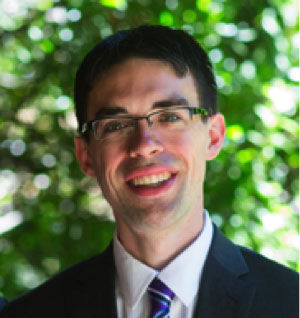University professor receives grant for data-driven research

Matthew Turk
October 16, 2014
Matthew Turk, research assistant professor in Astronomy at the University, was one of 14 researchers at universities named to receive the Moore Investigator Award in Data-Driven Discovery from the Gordon and Betty Moore Foundation. Moore Investigator Awards total $60 million and are a part of a five-year Data-Driven Discovery Initiative.
Turk is a research scientist at the National Center for Supercomputing Applications. His research is centered on learning how the first stars in the Universe formed, how they transformed their environments and how the fundamental mechanism by which stars form has changed over generations.
“Matt Turk is a dynamic scientist with an unusually broad vision,” said Brian Fields, chair of the astronomy department.
The awards are meant to strengthen incentives for data scientists in academia, create greater rewards for working between disciplines and support sustained collaborations among data science researchers, according to the Gordon and Betty Moore Foundation website. The grant goals also aim for researchers to build on each other’s work, capitalize on the best practices and create solutions that can be used more broadly by others.
Turk plans to use the five-year grant to further develop The yt Project. Turk described yt as a “tool with powerful, Python programming language for ingesting, indexing and processing data.” The program can conduct data analysis and visualization of the data.
Get The Daily Illini in your inbox!
“Right now, yt is developed by a large community of mostly volunteers from different institutions. What I’m hoping is that with this funding, we’ll be able to talk with other communities of researchers and to develop functionality that would otherwise not be developed.” Turk said.
Turk will use the grant to expand on three main areas of The yt Project: extending yt to other communities, developing deeper analytical questions for data and making yt much easier to find, access and analyze data.
“Pushing in those three areas, with the technology that’s available and the eagerness of the scientists, those together will make it possible to change the way that we pursue scientific discovery, and I am hoping to be a part of that, to collaborate with people inside the community.” Turk said.
Fields said he believes Turk’s work comes during a golden age for astrophysics and cosmology, since it has been discovered that the expansion of the universe is speeding up.
“The new discoveries across the universe pose deep new questions, and to address these questions, it will involve huge amounts of data and large, sophisticated computer simulations,” Fields said.
Fields said that The yt Project offers a powerful and user-centered means to study not only simulations but also data, and to seamlessly compare theory and observation.
“Yt has taken a life of its own by many researchers,” Fields said.
Edwin can be reached at [email protected].






